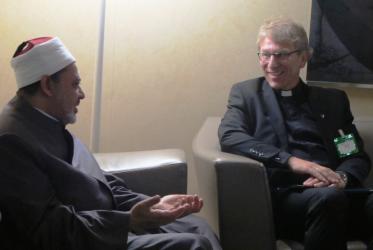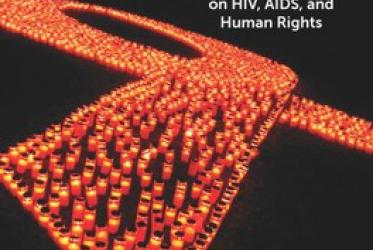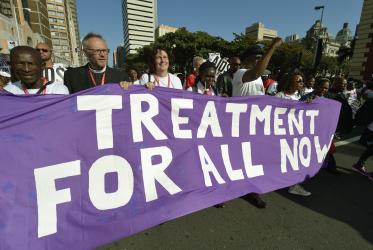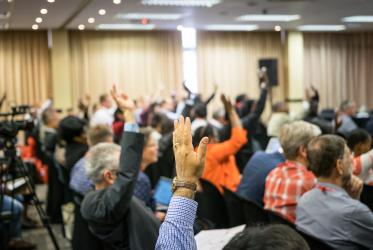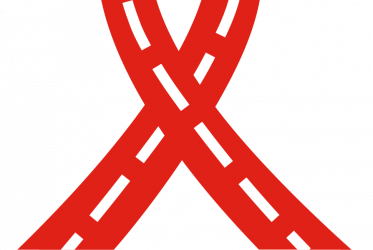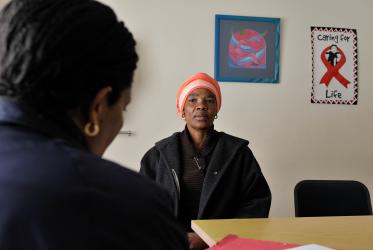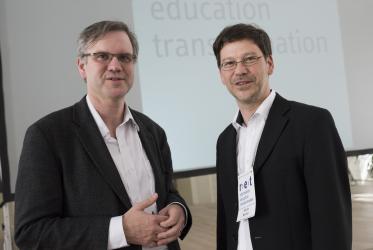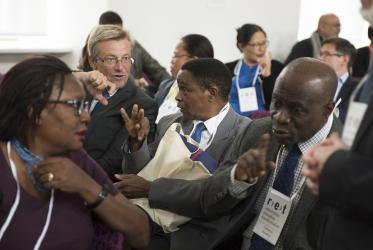Displaying 61 - 80 of 100
13 December 2016
Dialogue flourishes between WCC, Muslim Council of Elders
30 September 2016
WCC book featured in UN discussion on gender, religions and health
16 September 2016
AIDS 2016: Coverage of faith response to HIV
22 July 2016
Children are being let down over HIV care
17 July 2016
AIDS 2016: “Stigma kills more people than HIV”
17 July 2016
AIDS 2016 Media Guide
15 July 2016
Local work by faith-based groups key to ending AIDS
27 June 2016
Faith at AIDS 2016: WCC preparing for faith in action
10 March 2016
Bossey students on their way to future of ecumenism
10 February 2016
Person with disability shares reflection on AIDS conference
10 December 2015

